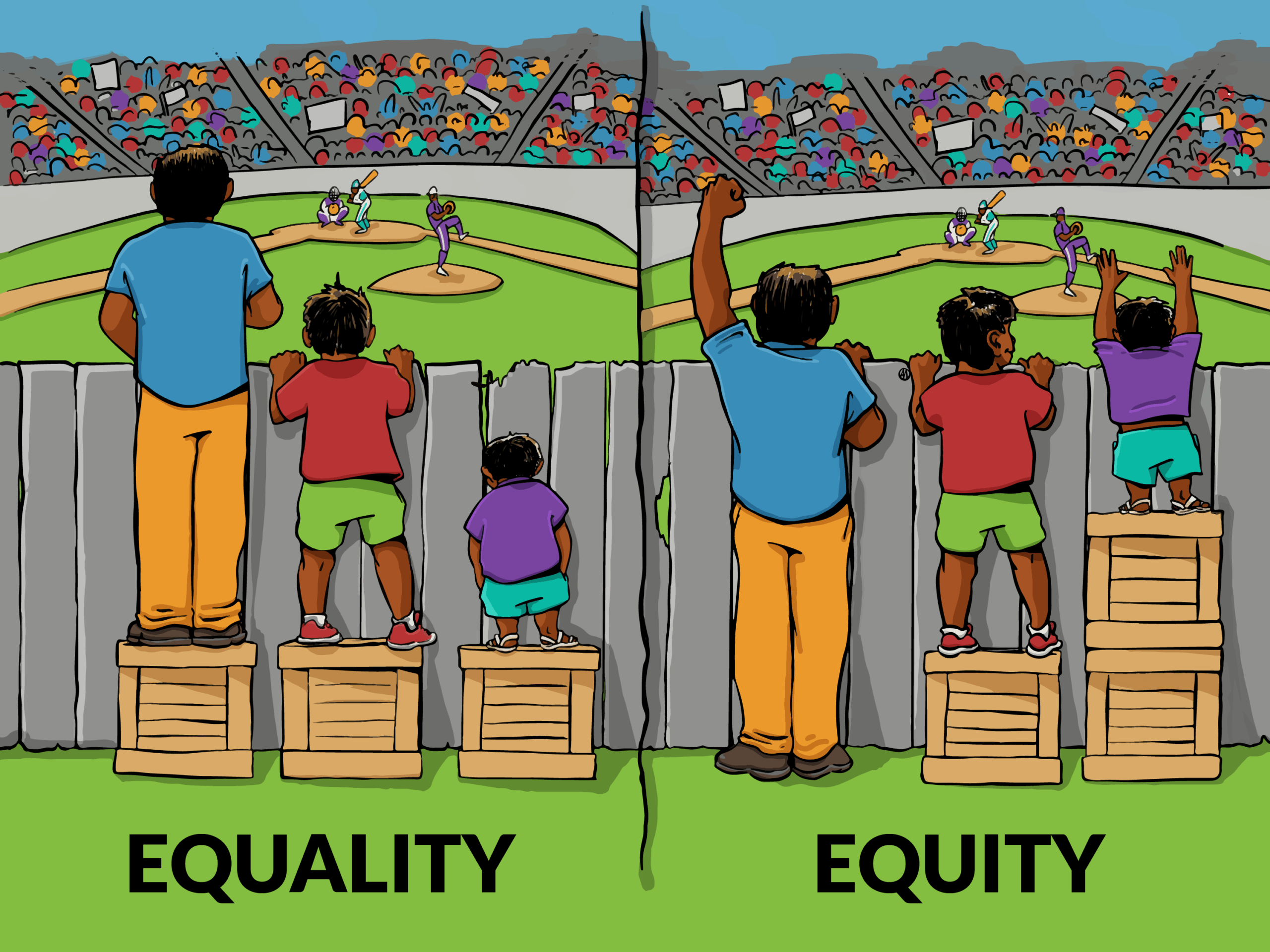In the tapestry of American society, the concepts of equality and equity resonate deeply with the core teachings of the Bahá’í Faith. These principles are not mere philosophical abstractions but are grounded in the aspiration for a just and harmonious social order. The Bahá’í perspective on equality and equity diverges from conventional interpretations, advocating for a profound understanding of these terms as interconnected yet distinct entities. This article endeavors to illuminate the Bahá’í interpretations of these principles within the context of contemporary American society, fostering a deeper comprehension of their implications and applications.
Understanding Equality and Equity
At the outset, it is imperative to delineate between equality and equity, concepts often conflated in discourse. Equality pertains to the notion that all individuals possess identical rights and opportunities, regardless of their socioeconomic status, gender, race, or other distinguishing features. Conversely, equity acknowledges the disparate circumstances and needs of individuals. It seeks to provide appropriate resources and support tailored to individual circumstances to level the playing field. Within the Bahá’í teachings, both concepts are integral to the establishment of a just society, where every person is afforded not only equal rights but also equitable access to opportunities that facilitate their development.
The Principle of the Oneness of Humanity
Central to the Bahá’í Faith is the principle of the oneness of humanity, positing that all people, irrespective of their background, are fundamentally equal. This principle is enshrined in the teachings of Bahá’u’lláh, emphasizing that humanity is like a single body, where various parts must work harmoniously for overall health and prosperity. This metaphor extends to the societal landscape, advocating for conditions that foster unity amidst diversity. The realization of equality among all people is essential for eradicating prejudices that permeate societal structures. In essence, the Bahá’í perspective inculcates a profound respect for diversity, positing that the acknowledgment of differences can enrich collective experiences while fostering solidarity.
Addressing Systemic Inequalities
A crucial aspect of Bahá’í teachings regarding equity involves an earnest examination of systemic inequalities that persist in the United States. Despite the foundational ideals of liberty and justice, various marginalized communities continue to face disparate access to resources and opportunities. The Bahá’í community recognizes the imperative to understand the historical and sociopolitical underpinnings of these disparities, advocating for methodologies that dismantle the barriers obstructing equitable access for all. It is through education and consciousness-raising that the Bahá’í community endeavors to inspire transformative change, addressing ingrained biases and fostering an inclusive society.
Promoting Gender Equality
The Bahá’í teachings assert the paramount importance of gender equality, firmly positing that the advancement of any society hinges upon the equal participation of both women and men in all realms of life. This principle transcends mere advocacy for equal rights, demanding a reexamination of cultural norms that have historically marginalized women. The Bahá’í community promotes the idea that true equity necessitates the empowerment of women through education, leadership opportunities, and active involvement in decision-making processes. By dismantling patriarchal structures and fostering environments conducive to women’s advancement, society can reap the benefits of diverse perspectives that contribute to holistic progress.
The Role of Education in Fostering Equity
Education is a cornerstone of both equality and equity as envisioned by Bahá’í teachings. The process of education transcends academic acquiring; it encompasses moral and spiritual development, equipping individuals with the tools necessary to contribute to their communities. Quality education serves as the great equalizer, extending opportunities to those historically disenfranchised. The Bahá’í community has established myriad educational initiatives aimed at promoting critical thinking, fostering discourse, and nurturing the capacity for action among youth. Such endeavors serve not only to fulfill individual aspirations but also to contribute to the wider social fabric, engendering environments where equity can flourish.
Service to Humanity
In alignment with the principles of equality and equity, service to humanity emerges as a vital theme within the Bahá’í framework. Engaging in acts of service fosters a sense of interconnectedness, reinforcing the notion that one’s well-being is intertwined with the well-being of others. This collective approach to service cultivates empathy and understanding, bridging divides within society. Bahá’ís are encouraged to engage actively in community-building efforts, promoting initiatives that alleviate inequality and foster equitable conditions for all individuals. Through these acts of service, the Bahá’í community embodies the commitment to uplift humanity, reflecting the teachings that advocate for the betterment of society.
Challenges and Opportunities
In the quest to manifest the ideals of equality and equity in the United States, numerous challenges persist. Socioeconomic disparities, racial injustices, and gender inequities remain deeply entrenched in societal structures. The Bahá’í community recognizes that these challenges offer opportunities for active engagement and innovation. By embracing collaborative approaches that harness the strengths of diverse communities, transformative change can be realized. Initiatives that promote dialogue, understanding, and cooperation among diverse groups are essential in fostering the societal conditions necessary for achieving true equity.
Conclusion: A Collective Journey Towards Equity
In conclusion, the Bahá’í perspective on equality and equity presents a holistic approach that transcends superficial interpretations. Recognizing the inherent dignity of every individual, while also addressing the nuanced disparities faced by marginalized communities, is paramount for achieving social justice. Through a confluence of education, service, and a commitment to the oneness of humanity, the Bahá’í community endeavors to contribute to a world where both equality and equity shine brightly. This journey is ongoing, requiring a collective commitment to foster a just and equitable society in line with the profound teachings of the Bahá’í Faith.
